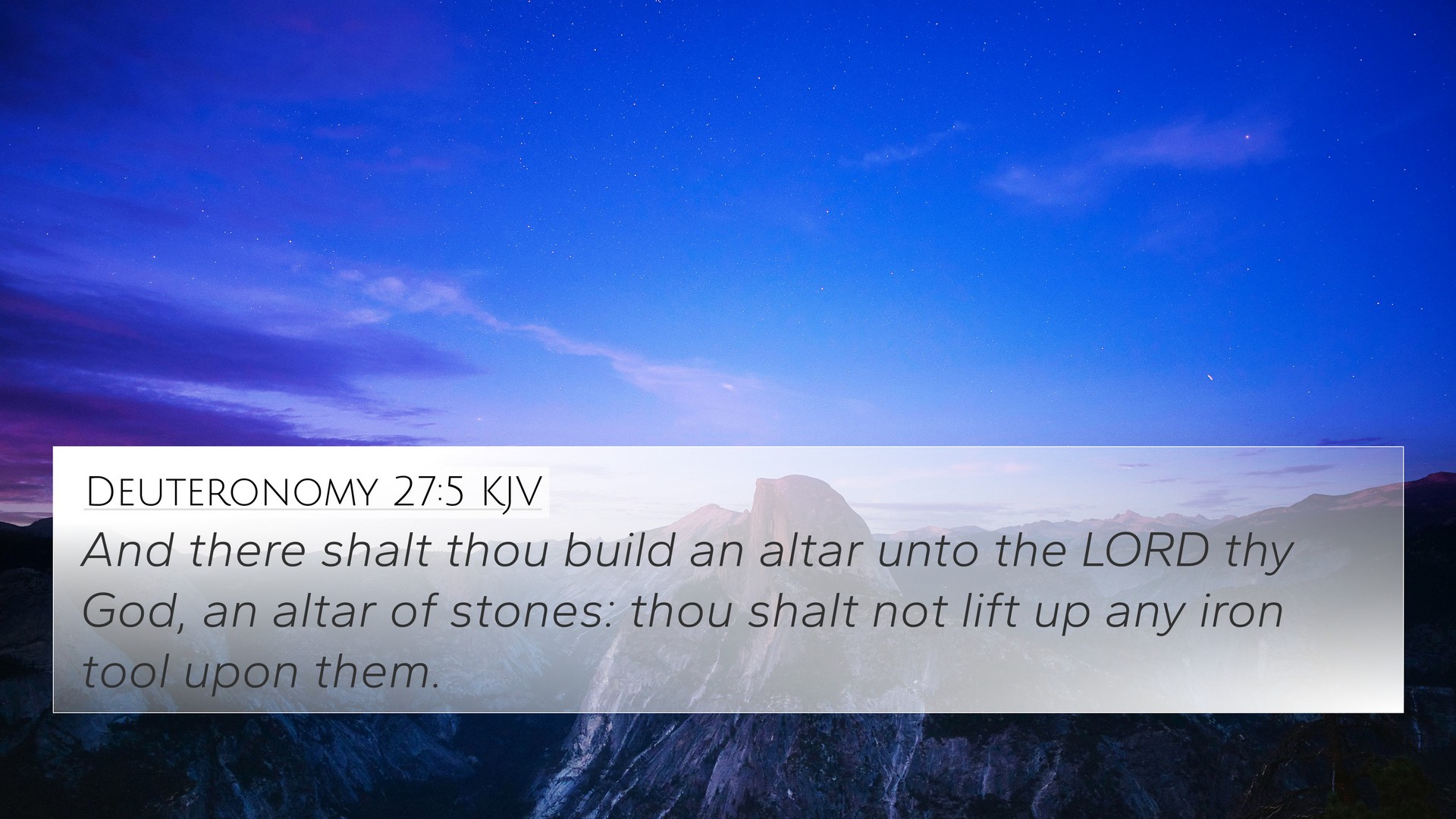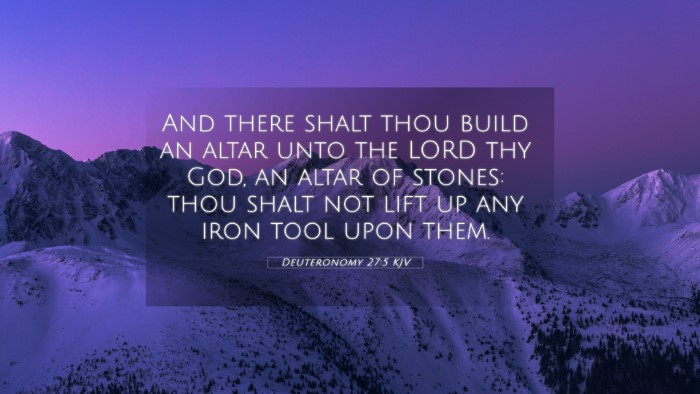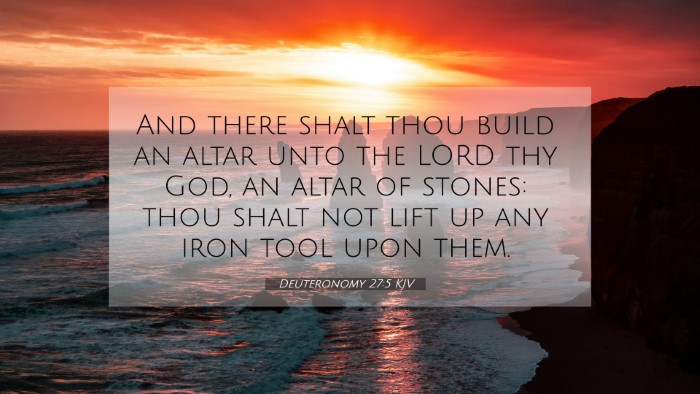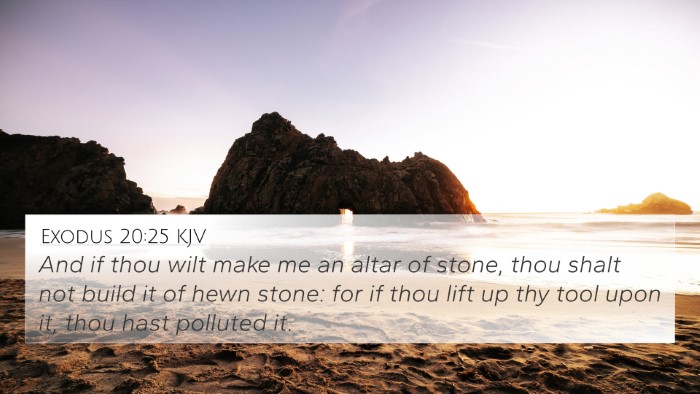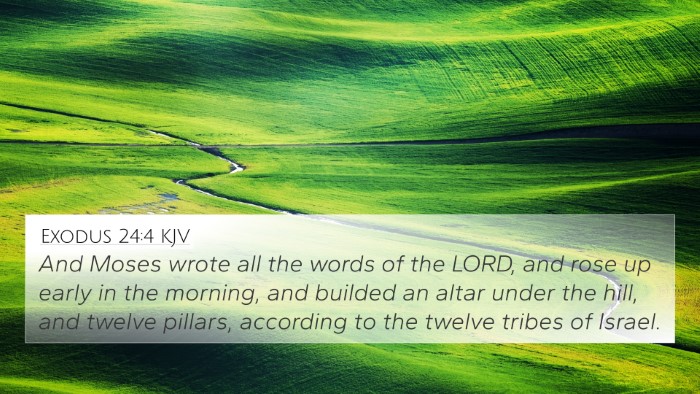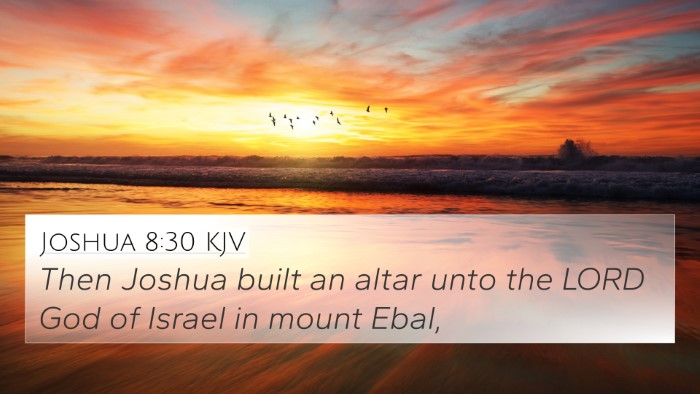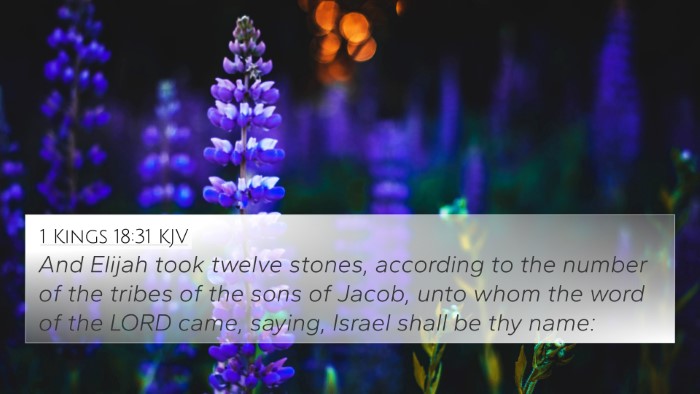Bible Verse Meaning of Deuteronomy 27:5
Deuteronomy 27:5 states, "And there shalt thou build an altar unto the LORD thy God, an altar of stones: thou shalt not lift up any iron tool upon them." This verse serves as a significant instruction within the larger context of Israel's covenant relationship with God, emphasizing the importance of obedience, reverence, and purity in worship.
Summary and Insights from Commentaries
This verse highlights several key aspects of worship and altars in ancient Israel:
- Purpose of the Altar: The altar was to be built for the worship of Yahweh, signifying a place of sacrifice and communion with God. It was central to the Israelite's spiritual life and corporate worship.
- Material and Construction: The command to use uncut stones signifies a need for purity and simplicity in worship. It implies that human tools should not interfere with God’s natural creation, representing a humble approach to reverence.
- Theological Implications: This teaching reinforces the idea of God’s sovereignty over the elements of worship. By using stones as they are, the Israelites acknowledge that God does not require elaborate or man-made enhancements to receive worship, but desires sincerity.
- Historical Context: Adam Clarke notes that this command was set in the context of the Israelites preparing to enter the Promised Land (Canaan), a land filled with pagan worship practices. The Israelites were to differentiate their worship practices from those of the surrounding nations.
- Symbolic Applications: Matthew Henry emphasizes that just as unhewn stones were the basis for the altar, the believer’s heart should be presented to God in its natural and unadulterated state, free from worldly adornments.
Cross-References Related to Deuteronomy 27:5
Understanding Deuteronomy 27:5 can be enriched by considering its connections to other scriptures:
- Exodus 20:24: "An altar of earth thou shalt make unto me, and shalt sacrifice thereon thy burnt offerings..." emphasizes the significance of the altar in offering.
- Joshua 8:30: "Then Joshua built an altar unto the LORD God of Israel in mount Ebal." This verse serves as an example of the application of the command given in Deuteronomy.
- 1 Kings 6:7: "And the house, when it was in building, was built of stone made ready before it was brought thither." This verse further illustrates the significance of stone in sacred architecture without human tools.
- Romans 12:1: "I beseech you therefore, brethren, by the mercies of God, that ye present your bodies a living sacrifice..." This links the old covenant altar with the New Testament concept of giving oneself wholly to God.
- Hebrews 13:10: "We have an altar, whereof they have no right to eat which serve the tabernacle." This underscores the continuity between the old and new covenants regarding sacrificial worship.
- Isaiah 56:7: "Even them will I bring to my holy mountain, and make them joyful in my house of prayer..." indicates God's desire for a pure worship experience for all, echoing the intent of Deuteronomy 27:5.
- Matthew 21:13: "And said unto them, It is written, My house shall be called the house of prayer; but ye have made it a den of thieves." This reflects the purity God desires in worship sites, akin to how the altar was to be constructed.
- Psalm 51:17: "The sacrifices of God are a broken spirit: a broken and a contrite heart..." This shows that God values the state of one’s heart over the physical aspects of worship.
- 2 Corinthians 6:16: "And what agreement hath the temple of God with idols?" stresses the importance of purity in worship spaces, tying back to the need for an uncut altar.
Importance of Cross-Referencing Biblical Texts
To delve deeper into the meanings and interpretations of scriptures like Deuteronomy 27:5, readers can utilize various cross-referencing tools—guides and concordances are invaluable for discovering thematic linkages as well as textual parallels.
- Bible Concordance: A resource that indexes words and phrases found in the Bible to aid in finding relevant scriptures.
- Cross-Reference Bible Study: Techniques that help connect related passages across both Old and New Testaments.
- Comprehensive Bible Cross-Reference Materials: Include guides that categorize verses by themes, topics, or theological constructs.
Final Thoughts and Interpretation Techniques
Understanding the connections between Bible verses like Deuteronomy 27:5 and its related passages can significantly enhance one’s study and appreciation of the Biblical text.
Engaging in comparative Bible verse analysis and exploring inter-Biblical dialogue leads to a richer grasp of scripture and God's requirements for worship throughout history.
